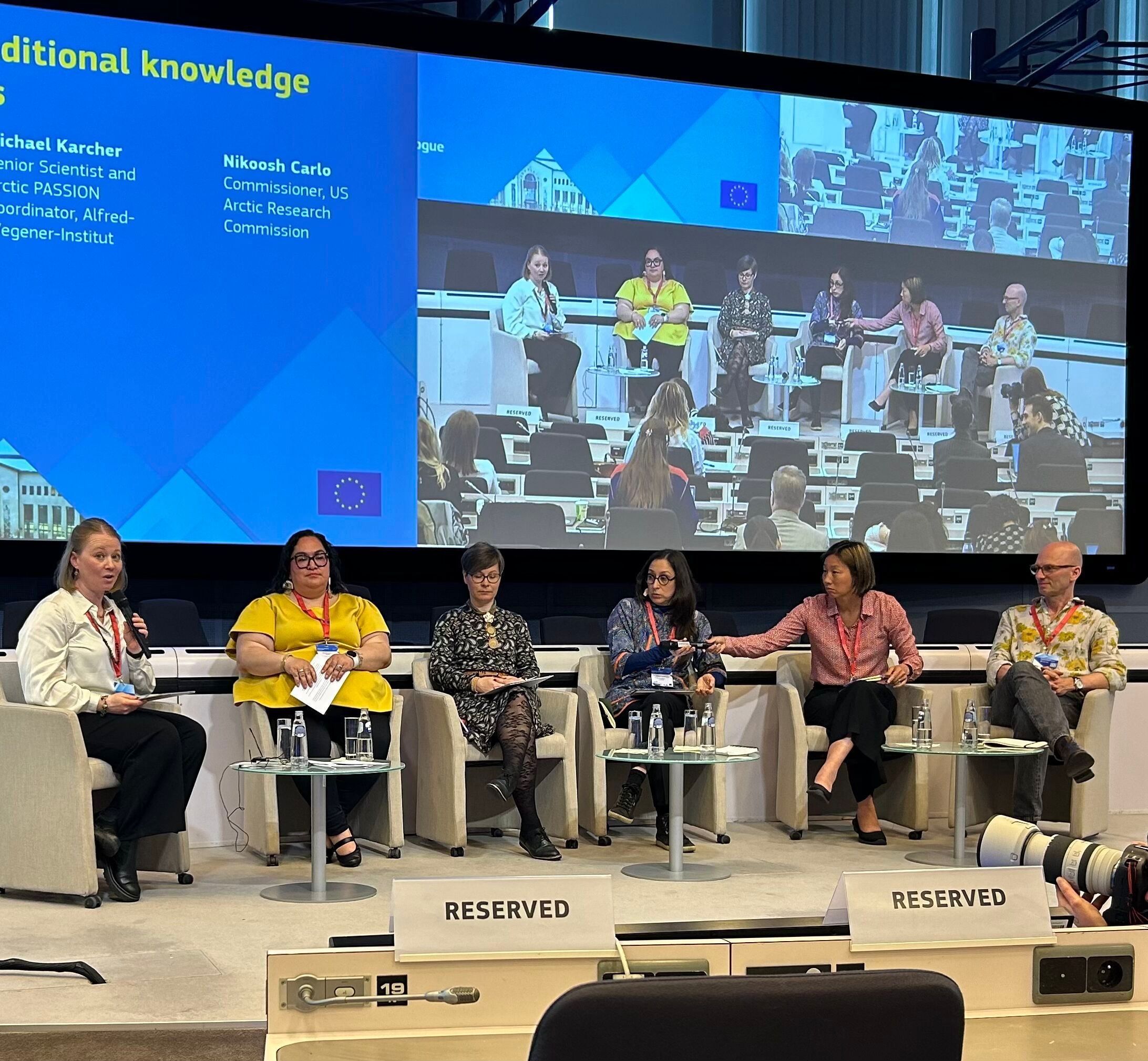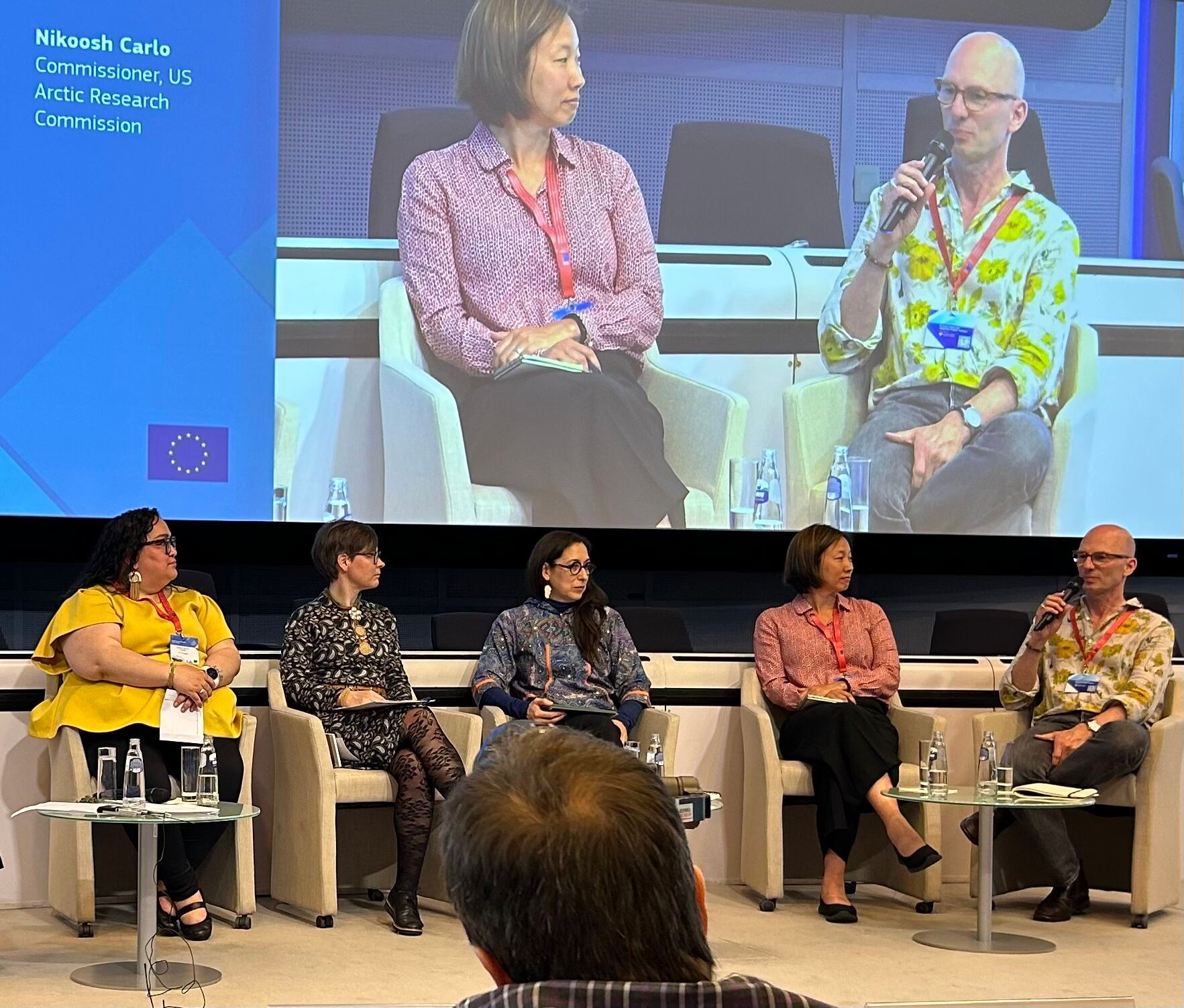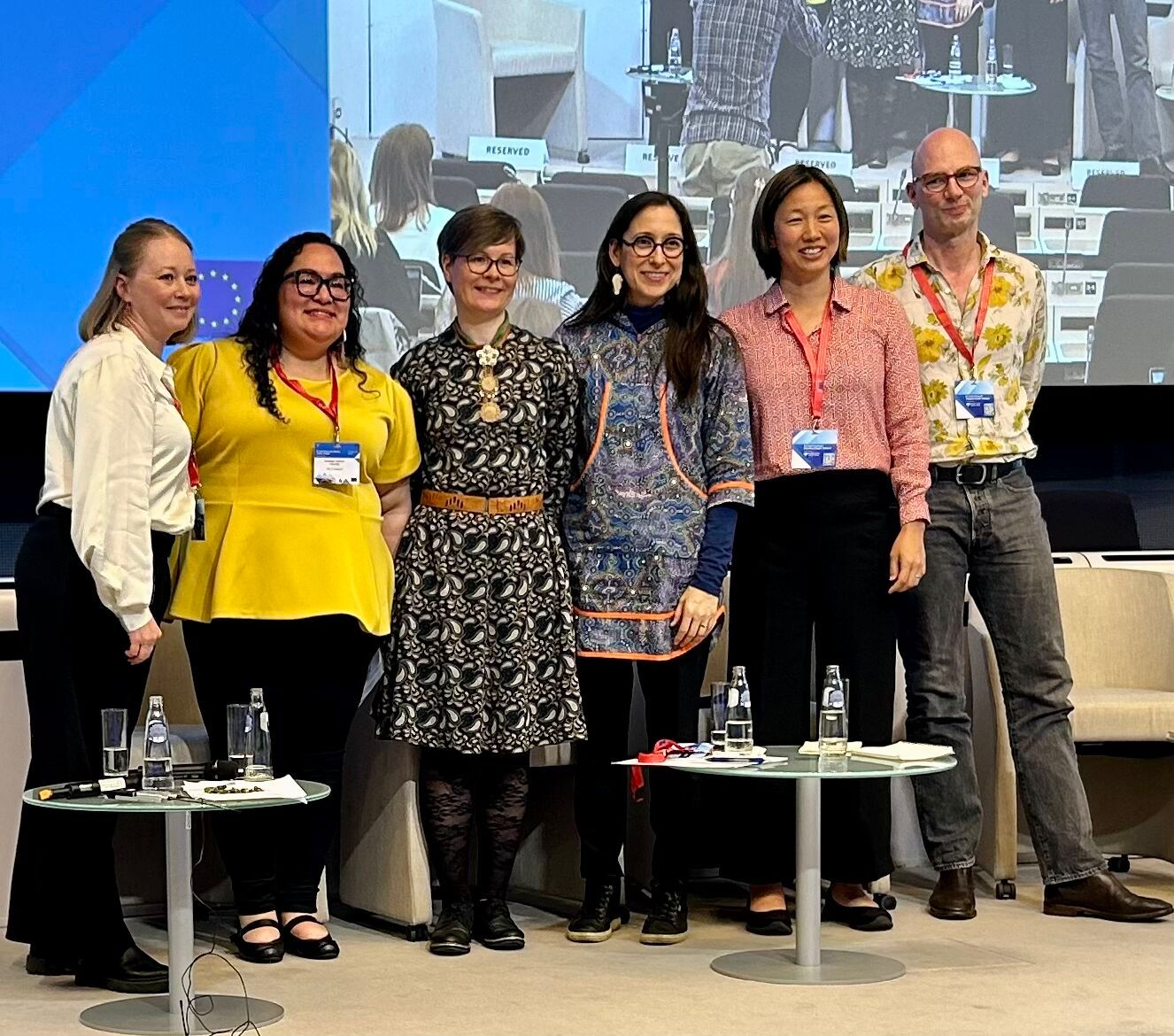The 2024 Eu Arctic Forum And Indigenous Peoples' Dialogue
by Sabrina Heerema | Published: 15-May-24 | Last updated: 22-May-24 | Tags : Arctic Dialogue EU event indigenous policy | category: NEWS
The sixth EU Arctic Forum took place in Brussels May 14th-15th, 2024. This was a special event consisting of three parts: the EU Arctic Forum, the Indigenous Peoples' Dialogue, and the first-ever Arctic Youth Dialogue.
The event was livestreamed and you can watch the recordings here. Here is also an overall impression of the sessions and their highlights in the views of the author.
Day 1 included headlines such as
- The EU in the Arctic: an expanded outlook
- Thriving Arctic ecosystems
- The way forward for Arctic entrepreneurship and sustainability
- Emergency Management in the Arctic
- Research in and for the Arctic
Here, emphasis was laid on the importance of Horizon funding to development of the EU Arctic region, as well as the influence of the Green Shift. Notably, the EU Arctic Office in Nuuk, Greenland was launched in March 2024. However, this in acknowledgement that the Arctic is home to communities and that there is a need to link Indigenous Knowledge with science, and to increase Sámi capacity to influence the EU for a just transition.
Day 2 included
- Diverse, Just and Inclusive Arctic Societies
- Resources in the Arctic
- Weaving indigenous and traditional knowledge into international processes
- The first EU Arctic Youth Dialogue from a youth perspective: Impressions, outcomes and policy recommendations
- Youth engagement in action
- Including youth recommendations in policymaking
- Conclusion: Dialogue with the youth - how can the EU ensure that youth recommendations developed during Arctic Youth Dialogues impact policies?
There was an emphasis on the need for Indigenous voices to lead the management of sustainable development, especially including Free, Prior, Informed Consent in order to avoid Green Colonialism, with reference to the known development catchphrase "nothing about us without us" and to regarding diversity as strength.
The main highlight of the event was the Youth Dialogue: the first of it's kind but leaving such a lasting impression that all were left wondering 'why only now?' Thankfully, it is a project that will last for at least another four years. The EU-Arctic Youth Dialogues is funded by the European Union as part of a large initiative, and organized and delivered by a consortium led by the WWF Global Arctic Programme (WWF Sweden), in cooperation with the Arctic Youth Network, the European Youth Parliament (Schwarzkopf-Stiftung Junges Europa) and its Norway Alumni Association, the Saami Council, Arctic Mayors’ Forum, Tromsø Kommune, the University of Tromsø, and the Association of Polar Early Career Scientists.
The Youth Dialogue used a very unique, interesting and effective approach in involving mainly youth representatives from every Arctic State in each session, as well as in moderating these, and included storytelling which was a very powerful way of connecting with each and every audience member present and presenting unique viewpoints and life experiences. The youth participants were also very talented public speakers.
Arctic PASSION was honoured to be present, to be mentioned throughout the events as an important source of data for informing Arctic policy, and to contribute to the session "Weaving Indigenous and traditional knowledge into international processes", the final session of the Indigenous Peoples' Dialogues.
The panel discussed how Indigenous peoples have contributed to the international scene by sharing their experiences and traditional knowledge, and how traditional knowledge can support international processes. The discussion was moderated by Patti Bruns, Secretary-General of the Arctic Mayors’ Forum and speakers major points included:
Asisaun Toovak, Mayor of Utqiaġvik in the United States advised researchers to "start local", reminding that projects should benefit the local people in the area of study, referencing the Saami Council's 'Roadmap to decolonial Arctic Research'. She advised Indigenous Peoples' Communities to gather and have a united voice, illustrating how the North Slope Forum was created to provide scientific evidence for government decision-makers in a conflict between the millennia-old tradition of subsistence hunting of bowhead whales in coastal communities vs. a whaling moratorium for fear of not enough whales which greatly impacted the local culture.
Elle Merete Omma, Head of the Saami Council's EU Unit said that Indigenous Knowledge is often overlooked, and that when decision-making is not based on the best available knowledge, it's alarming, citing the EU Critical Raw Materials Act as an example and a missed opportunity. Indigenous Peoples' Communities need increased capacity building to be at the table.
Vicki Lee Wallgren, Director of WWF's Global Arctic Programme emphasized that Indigenous People are rights holders, that 80% of the World's forests are under Indigenous stewardship and their important role in safeguarding the environment.
Michael Karcher, Senior Scientist at the Alfred Wegener-Institut and Arctic PASSION's Coordinator, stated that the role of science is to inform and that putting Indigenous Knowledge and science together indeed makes best sense, and that without Indigenous Knowledge half would be missing and that the knowledge would be 'unscientific'. He used Arctic PASSION's work with Snowchange Cooperative on an event database where Indigenous Peoples' Communities have defined relevant events and are shaping the view of what has happened in areas. This data is being made available on arcticseas.org.
Nikoosh Carlo, Commissioner at the US Arctic Research Commission underlined that co-creation is an opportunity to build on strengths and drive action, relying on a foundation of equity, and that space is available for all knowledge systems, so Indigenous participation should be increased.



For more photos and videos of the event, please look at the official event media on the homepage of teh European Commission, or search #EUArcticForum or #IndigenousPeoplesDialogue on social media.
Photos: Sabrina Heerema
